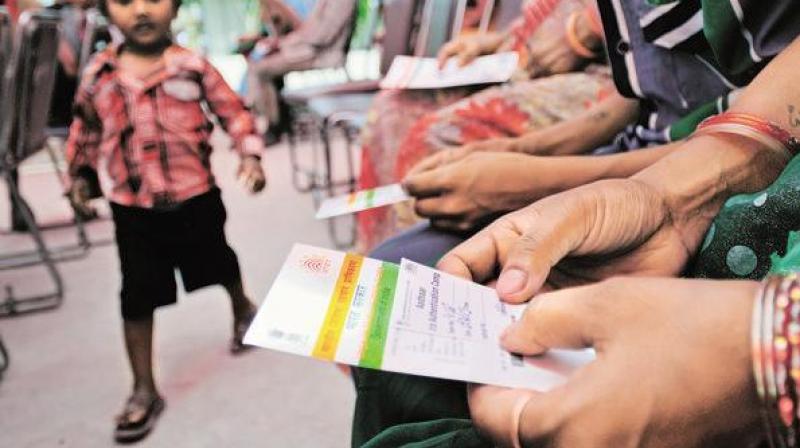March 31 is deadline to link Aadhaar with schemes, mobile numbers: SC
New bank accounts can be opened without Aadhaar but applicant needs to submit proof that he has applied for the card, says SC.

New Delhi: The Supreme Court on Friday approved the Centre's submissions to extend the deadline of linking Aadhaar with bank accounts and for availing various social welfare benefits to March 31.
The Constitution Bench of five judges comprising Chief Justice Dipak Misra, and Justices AK Sikri, AM Kanwilkar, DY Chandrachud and Ashok Bhusan also extended the deadline to link Aadhaar with mobile numbers to March 31. Earlier, the deadline for Aadhaar-mobile number linking was February 6.
For opening bank new bank accounts without an Aadhaar number, the applicant needs to submit at the bank the proof that s/he has applied for the unique identification card, Justice Chandrachud, who wrote the unanimous interim order, said.
The Constitution bench heard Attorney General KK Venugopal for the Centre and a battery of lawyers led by Gopal Subramanium, seeking stay of the notifications, before pronouncing the order.
The bench will next hear the petition challenging Aadhaar scheme from January 17, 2018.
Recently, a nine-judge constitution bench of the apex court had held that Right to Privacy was a Fundamental Right under the Constitution. Several petitioners challenging the validity of Aadhaar had claimed it violated privacy rights.
Some petitioners in the top court have termed the linking of the Unique Identification Authority of India (UIDAI) number with bank accounts and mobile numbers as "illegal and unconstitutional".
As the hearing against the mandatory linking of Aadhaar to various schemes began, the AG had informed the apex court that the Government has decided to extend the deadline till March 31 for linking of Aadhaar with existing bank accounts.
For opening of new accounts in banks, linking of Aadhaar has to be done by March 31 or within six months from the date of commencement of bank account – whichever is later.
On Thursday, senior counsel Shyam Divan had submitted that Aadhaar has been made mandatory for bank accounts and welfare schemes in violation of an earlier order of the Supreme Court, which had permitted it only for six schemes.
Aadhaar has been made mandatory for board exams, scholarships, noon meal programme, cremation of dead persons, higher education by the education boards and the University Grants Commission. Even HIV-positive patients are denied treatment if they do not have Aadhaar, Dhivan said.

